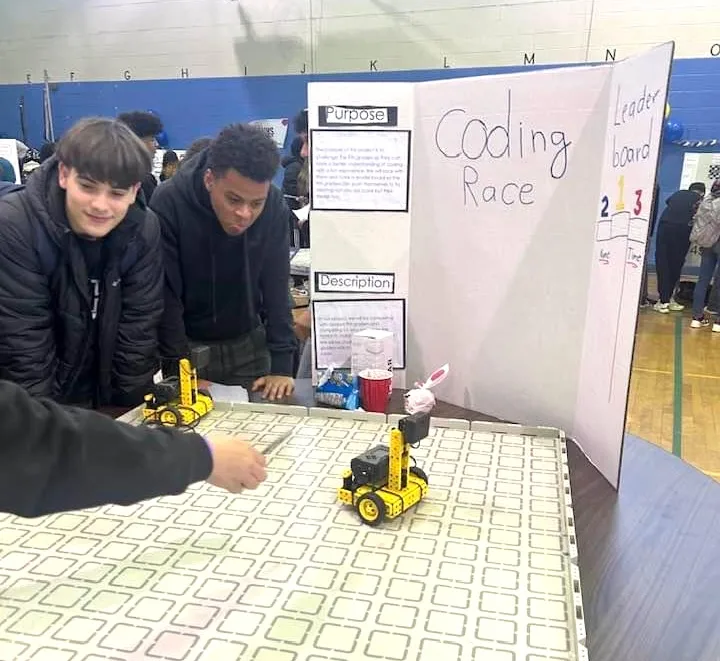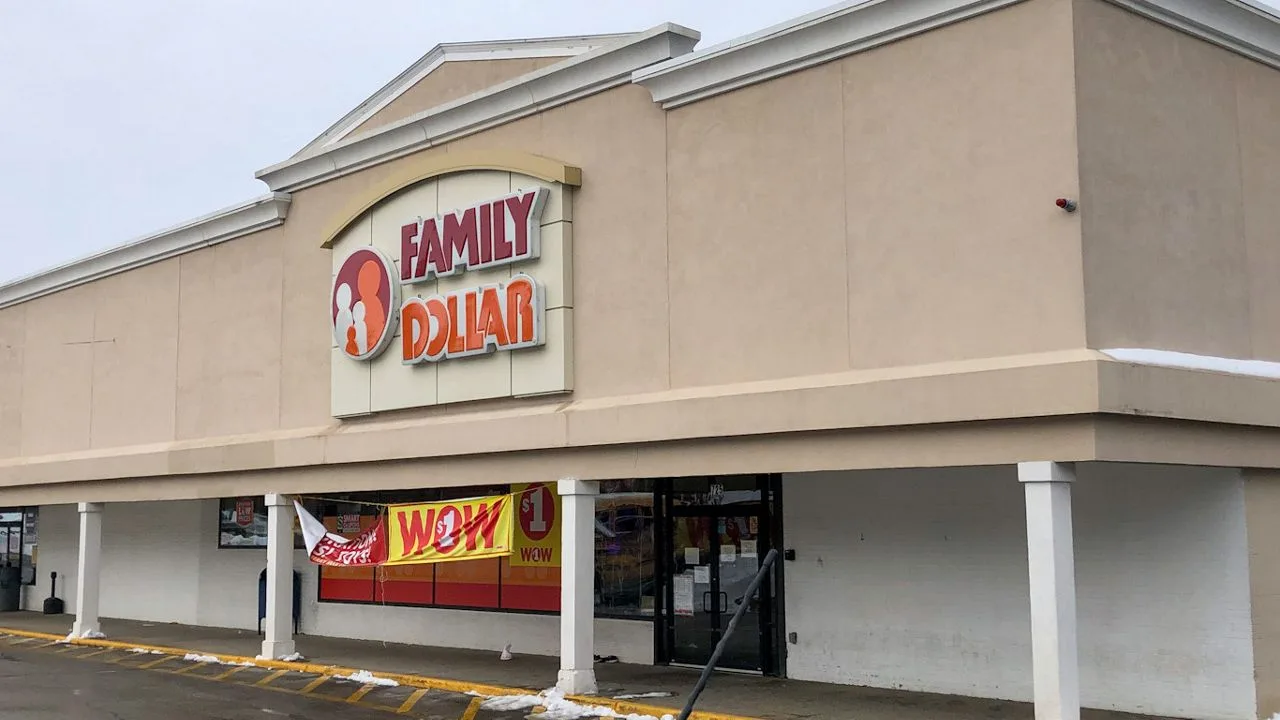Three app creators shaping the future of education, fitness, and health
by themoneyofficeappstore@gmail.com 7 March 2024 · Education / Education Apps
March 6, 2024
UPDATE
Three app creators shaping the future of education, fitness, and health
The creators behind Boddle, Run Legends, and Wysa — all alumni of Apple’s Entrepreneur Camp — share how they’re empowering people with their cutting-edge apps
Around the world, developers are building apps that break down barriers across gender, race, socioeconomic status, language, and physical ability.
In celebration of Entrepreneur Camp’s fifth anniversary, Apple spoke with alumni app creators whose apps are shaking things up in education, fitness, and mental health. All three women have participated in the immersive tech lab that invites developers from underrepresented groups to take their apps to the next level with one-on-one guidance from Apple experts, engineers, and leaders. Entrepreneur Camp underscores Apple’s ethos that apps for everyone should be made by everyone.
Edna Martinson, a 2023 Entrepreneur Camp alum based in Tulsa, Oklahoma, launched Boddle Learning during the COVID-19 pandemic, when students and teachers were adjusting to the sudden transition to learning from home. The education app for kids uses gameplay and machine learning to tailor content to their learning levels, helping them tackle learning gaps and boost their confidence in the classroom.
After graduating from MIT, 2022 Entrepreneur Camp alum Jenny Xu founded her own studio and fused two of her lifelong passions — running and gaming — into Run Legends. The immersive multiplayer game was designed to make walking and running more fun, encouraging players of all fitness levels to team up with friends to battle and overcome real-life anxieties.
And Jo Aggarwal, a 2019 Entrepreneur Camp alum, is the founder and CEO of Wysa, an emotionally intelligent chatbot — written by therapists working with AI designers — to help users talk through difficult emotions and thoughts anonymously, anytime. Based in Boston and Bengaluru, the app has helped millions of people across 95 countries learn how to feel happier.
Below, Martinson, Xu, and Aggarwal reflect on their journeys to becoming app developers, how they’ve infused personalization into their apps to make them more accessible to all, key lessons they’ve learned along the way and at Entrepreneur Camp, and how they’ve harnessed technology to craft innovative solutions to real-world problems.
Making Space for Women in App Development
Jenny Xu (JX): When I started out in the gaming industry, I felt like I was the only one doing what I was doing. I grew up playing a lot of story-based interactive fiction — artistic games that make you come away having learned something about life, and I think that’s a genre that’s predominantly popular with women. With Run Legends, even though it’s a battle game, it isn’t a game that makes people feel really aggressive when they’re playing it — they can feel empowered. Now that I’ve raised some money and shipped some games, I try to give back and show that it’s possible to build games that aren’t just shooters, but games that actually make the world a better place.
Edna Martinson (EM): My perspective as a woman in this field has really shaped our team and how we connect with our community, especially since most elementary school teachers that we serve are women. We’ve had a blast doing virtual career days on Zoom, showing kids how we made Boddle, and introducing them to game design. It’s super rewarding to see the excitement on little girls’ faces when they find out a woman cofounded Boddle. It shows them they can be leaders in tech too.
Breaking Down Barriers Through Personalization
Jo Aggarwal (JA): We set out to solve for global mental health and give people a safe space to work through their thoughts and emotions, building resilience irrespective of stigma, race, gender, access to a therapist, or diagnosis… Language can also be a barrier, and in an effort to make Wysa’s support more inclusive, we are launching Wysa in Spanish to create more equitable access to marginalized communities.
EM: At Boddle, we understand that every kid learns differently and at their own pace, so we’re using machine learning to tailor content to kids’ levels and help identify learning gaps through fun and interactive gameplay. We also provide teachers with the tools to be able to support their students, giving them access to kindergarten through sixth-grade assessments and videos in math and English, and a host of grading and reporting tools.
JX: We noticed that in other fitness experiences, people who were faster or more fit were often rewarded for how fit they were, so others would be intimidated. Run Legends uses core location, core motion, and accelerometer data on the Apple platform to detect how fast somebody is going and adjust the gameplay based on that. So if you want to play at a 20-minute walking pace or at an eight-minute running pace, it’s all the same. There’s actually no advantage to going faster or slower through our game. There are quite a few walkers who play the game and say that the game’s gotten them to go from walking to eventually going faster and moving up to a jog.
Finding Support and Mentorship
JA: Entrepreneur Camp was amazing, meeting so many like-minded entrepreneurs and making friends with them. I do stay in touch with some of the cohort who are in similar fields. The campus is so beautifully designed, and to learn Apple design principles within that environment was like a dream come true. We had design sessions with Apple team members who helped us understand how to position Wysa, and today, we are one of the top-ranked apps in our space.
JX: When we attended Entrepreneur Camp, it was very early on in Run Legends. We didn’t even know necessarily what the game would look like. We got this opportunity to talk to the design team, who knew what was working on the App Store and would do deep dives on our app. One example was our onboarding experience — our rep told us, “What happens if a player isn’t ready to run or go outside? You would lose so many people if you didn’t provide an alternate experience that could be played indoors.” So we changed our entire onboarding flow because of that feedback and realized after launch that almost half of all players used the alternate experience.
Building More Immersive Experiences
EM: Boddle is more than just a game for math or English. We’re creating a learning metaverse with different game experiences. If kids love basketball, they can jump into a basketball game. If they’re into pets, they can check out our pet-battling game. The cool part is they get to pick what they want to play, and their learning goes with them wherever they go in Boddle’s world. They’re in charge of their own learning adventure, picking what they want to do and learning along the way.
JX: In Run Legends, we use Spatial Audio so that when you turn your head, it sounds like the battle is actually happening around you. If you turn to the left, you might hear the monster snarling at you, but if you turn right, you could hear your teammates cheering you on. You feel the haptics as you charge up your attack and as you sprint, and you feel like the battle is happening right there. That feeling gets people to work out longer and harder. Players often tell us they’ve done the fastest walks or runs in their entire life through it, and it’s because of that interactive audio experience.
JA: What has truly been unique about Wysa has been how we iterated the product. We did not start with a clinical workbook and turn it into a chatbot. We took evidence-based techniques that worked, and then listened to users about what they needed and where some didn’t work for them. We then worked with clinicians to create models that worked for users when they tried to help themselves. This created a power balance between users and clinicians, powered by AI and analytics, which had never been possible before.
Creating Innovative Solutions to Real-World Problems
JA: We wanted to make access to mental health permissionless — something you could reach out to on your phone at 3 a.m. and continue to use as often as you needed. Research shows that people are 3x more likely to open up to AI than even a human therapist. This creates an opportunity to create psychological safety, but also must be followed through with privacy-first design and proven, measurable outcomes. We were able to show impact with adolescents as well as older adults with chronic pain, with blue collar workers as well as tech professionals.
JX: The narrative in Run Legends is that you’re fighting real-world anxieties through your battles in the game. So you’re not fighting a minion or a generic enemy: You’re fighting your critical grandma who’s telling you you’re not good enough, or a hyper-competitive Chad who’s always trying to beat you. We’ve heard our players say it’s a cathartic experience. They’re actually healing from the battles and the narrative of overcoming obstacles.
Press Contacts
Cathy Park
Apple
Apple Media Helpline



